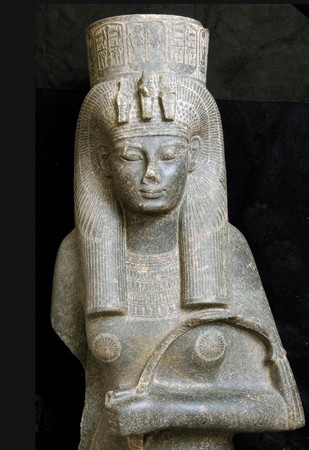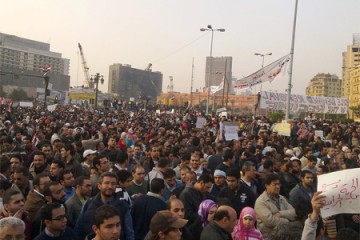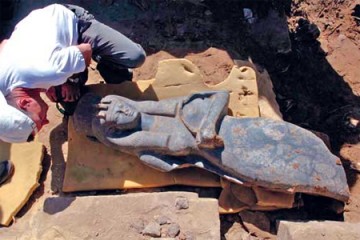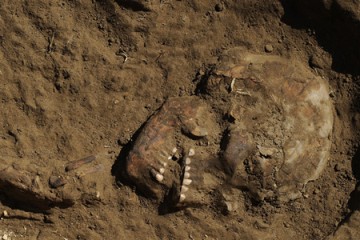Here's a rundown of current activities in Egypt, a country in political flux.

Mother and Child: Political turmoil in the country has only exacerbated health and economic conditions; currently, one in five households falls under the poverty level. Particular concerns for the impoverished are food availability and its ramifications. The U.S. government's flagship Maternal and Child Health Integrated Program, led by Jhpiego, is now conducting a study to understand factors associated with stunted growth and improvement of childhood nutrition. MCHIP is a consortium of eight international health NGOs working together to improve health outcomes for mothers and newborns around the world.
Suspended: Generally speaking, the nation's instability and current threat of violence have caused several JHU-affiliated activities to cease until a time when they can safely resume. Since Egypt falls under the State Department's travel warning, Johns Hopkins currently doesn't allow undergraduates to travel to Egypt; a student can, however, petition for an exception if he or she can justify the value of the experience and the university can reasonably assure the student's safety. The Center for Talented Youth has suspended activities there.
Digging in the Dirt: This spring, Betsy Bryan and a team of archaeologists will return to Luxor to continue work in the Temple of Mut at Karnack. Bryan, the Alexander Badawy Professor of Egyptian Art and Archaeology in the Krieger School, has worked on the site since 2001 and on this next trip plans to remove and X-ray some skeletons that were discovered last year and are believed to be the temple's servants. "Our guess is that these were very poor people, as they were not even able to afford regular coffins," Bryan says. In May and June, Bryan and a team of JHU undergraduate and graduate students will likely finish up the archaeological work in these areas. Bryan expects then to get to work on a major publication on the findings.
The War Against Human Trafficking: At any given time, an estimated 2.5 million people are in forced labor activities, including sexual exploitation; more than 9 percent are in the Middle East and Northern Africa. The Protection Project at SAIS has several programs in Egypt aimed at advocating human rights. Among its activities, TPP hosts annual human rights conferences in collaboration with Alexandria University to help raise awareness on human trafficking; has worked with the Egyptian government in designing and implementing the recently adopted National Action Plan to Combat Trafficking in Persons; established the first human rights–focused legal clinic in the nation; sponsors research scholarships and fellowships in the region; and has conducted a number of educational and outreach efforts.
Posted in Politics+Society
Tagged egypt, betsy bryan










